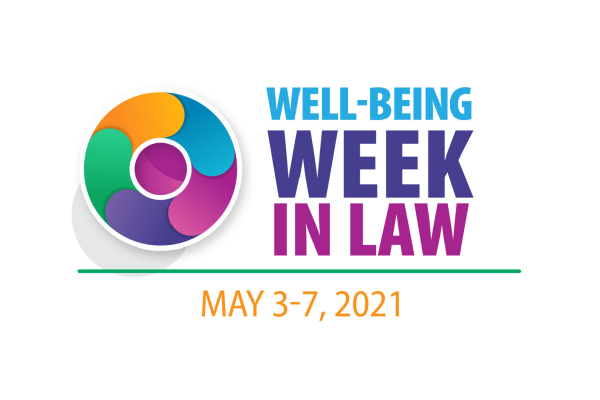96% of law students experience significant stress, compared to 70% of med students and 43% of grad students.
But it doesn’t have to be debilitating. We’re covering how to evaluate your stress level, how to know when to get help, and how to get it.
Depression, anxiety, and alcohol or drug-related impairment occur at much higher rates among lawyers and law students than in the general population, according to various studies over the past few decades. You might think the explanation is that people prone to stress and its effects are especially drawn to a career in the law. But that’s not what the research seems to show.
“Law students start law school with high life satisfaction and strong mental health measures. But within the first year of law school, they experience a significant increase in anxiety and depression. Research suggests that law students are among the most dissatisfied, demoralized, and depressed of any graduate student population.” (The Path to Lawyer Well-Being (ABA, 2017).) The best information we have suggests that prospective law students are similar to other Americans before their first day of school, but then the incidence of these problems skyrockets after they cross the threshold into law school.
Stress in law school is different from the stress we write about in The Full Weight of the Law: How Legal Professionals Can Recognize and Rebound from Depression (ABA, 2017) — available to borrow from our lending library. You can catch a webinar on The Weight of Law School: Recognizing and Rebounding from Depression here, which we presented for the ABA in March of 2018.
WHY IT’S SO MUCH MORE STRESSFUL
What happens at that point of transition and change? Well, Dorothy, you’ve left Kansas, that’s what. Law school, not unlike the land of Oz, is a place that has enough in common with previous educational settings that you might feel like you can manage it in the ways you’ve always managed. “I excelled in undergrad, I’ll be fine,” many law students think.
Yet it’s different enough to put most, if not all, of your preexisting coping mechanisms to the test. With rates of depression at the end of the first semester of law school approximately four times higher (27 percent) than that of the general population (7 percent), law students face a mental health challenge like most have not faced before.
In one sense, you know this experience far better than we do—we’re both psychologists who never attended law school. But we have a particular window into your world based on having interviewed many law students who meet with us at the lawyer assistance program for Massachusetts. In that role, we help students and lawyers in general make sense of their symptoms and develop a plan to overcome or cope with them.
A common theme we hear is that law school has tested them in ways they didn’t expect or for which they didn’t feel adequately prepared. One reason for this surprise is that we’re creatures of habit. The old adage, “If it’s not broke, don’t fix it” can be a helpful guiding principle in many circumstances—until it’s not.
The flip side of this pearl of wisdom is that we often fail to question whether our way of doing something—in this case, our way of coping with stress—is the most effective given our current situation. We can hold onto our familiar ways long after they cease to be effective. Given that law school is a stressful environment like no other, you must adapt your coping mechanisms. Here’s our simple 3-Step Survival Guide for Law Students.
MAYBE EVERYBODY’S FAKING IT
Isn’t law school supposed to be difficult? How do you know whether you’re experiencing significant mental health symptoms or just the normal reaction to a challenging new environment? A licensed clinician can help clarify that for you — and Massachusetts law students can talk to us for free and confidentially.
You dropped yourself into a highly competitive and adversarial setting that presented you with a fixed, longstanding culture accompanied by particular values and expectations. In this world, those who make the most money or handle the biggest or highest-profile cases tend to be regarded as most successful.
It’s also an entirely new challenge to an ability to “coast” based on your native intelligence and talent for last-minute “cramming,” as you may have been able to do in previous educational settings, and there’s a lot of material to master. It’s easy to feel lost, or like an imposter, and to imagine that the other students are handling things with minimal difficulty—in fact, you and they may both be putting on a front, since law school is also typically not an environment that smiles upon open expressions of vulnerability.
You may be getting the message from some faculty that you’re in a Darwinian environment in which only the strong survive: “You’d better shape up and adopt values that place dogged work and competitive striving above the relationships, activities, and sources of meaning and purpose that were inherent in your pre-law school life.”
Although it would be natural for you to want to emulate those who’ve achieved status in the field, these messages are wrong. Resilient people survive anywhere. The “strong” ones burnout. Everyone has the ability to develop resilience, particularly with help. You may not be an expert on case law or as old as your professors, but they’re not psychologists, and you’re the expert on living life for yourself and your values.
ISSUES WORTH HONESTLY CONFRONTING
If your external world doesn’t emphasize your own well-being, it’s up to you to do it. Here are just some questions to consider:
- Are you sleeping poorly or not enough?
- Is your nutrition suffering either because you’re grabbing junk food or your appetite has diminished?
- Does your daily and weekly life seem to be devoid of gratification?
- Are you barely able to drag yourself out of bed in the morning?
- Are you missing classes and isolating yourself from peers and professors?
- Are you often immobilized by anxiety?
- Do you no longer enjoy law school and other things in life that you used to find pleasurable?
- Do you find yourself yearning each day for the time when you’ll be able to drink or get high?
- Are you feeling distant from those you care about?
All of these can be symptoms of clinical problems. Law school isn’t the sole cause of any of them, but it is a setting that may trigger or exacerbate them. In addition, many law students report that heavy drinking is considered a reasonable way to cope and to get a quick, if artificial, break from all the stress.
Given all of this, it’s easy to convince yourself that you should just tough it out. “Law school is only a few years; I’ll take care of myself once I graduate” is often the thinking.
Except it’s not just a few years. It’s your career. As a creature of habit (i.e. habits form new neural pathways in human brains), you’ll most likely repeat your coping patterns from law school once you’ve started your professional legal career. Our strong recommendation to law students is always to act now. Don’t put your mental health off until you’re at a crisis point, and don’t wait for graduation to take care of yourself.
TREAT YOURSELF AS YOU’D TREAT OTHERS
Your decision to go to law school was a big investment in yourself — your time and your energy. It requires your time and energy, along with sacrifices in time and energy left for personal relationships. And in most cases, it involves taking on very large student loans. We’re willing to bet that if you’d made the same investment in an expensive car, you’d be proud to take care of it. Protect your investment in yourself so that you can benefit from the sacrifices you’re making now for your future legal career.
Unfortunately, unlike expensive cars, we don’t have warning lights to tell us when we should address a problem. Knowing when to ask for help involves knowing yourself and being aware of changes in your thoughts, feelings, behaviors, and physical body.
We recommend you make it a regular practice to take a personal inventory in terms of your stress levels, feelings of depression and anxiety, negative thoughts, behavioral changes, and levels of physical and emotional isolation. We’ve often found that lawyers and law students have trouble answering questions like, “How do I feel? What do I need?” and that genuine, façade-free interactions with trusted friends and family have faded from their lives. Those changes can lend themselves to the kinds of symptoms described above.
If you question whether your internal experience rises to the level of concern—“Are my symptoms really that bad?” you might ask—try a mental exercise. Ask yourself whether you’d be concerned for a loved one who reported having the same kinds of feelings or behavior you’re having but wasn’t in law school. If you’d want them to face the problem, then you might think about taking steps for yourself.
WHY GETTING HELP JUST MAKES SENSE
A common fear among law students is that asking for help is a sign of weakness or that receiving mental health treatment will make it difficult to pass the character and fitness portion of the bar exam. Remember that recognizing a need and seeking out resources is a sign of strength. It demonstrates awareness, good problem solving, and resilience in the face of stress.
Bar examiner boards aren’t interested in perfect people—they want competent people. A sign of competence is an accurate assessment of your needs and a targeted plan of action. We write more on this and answer other FAQ from law students here.
When you decide to search out additional support to help with your mental and emotional well-being, you have various options on where to start. You can begin with your dean of students or law school counseling center. But some students prefer not to start with their academic institution.
Law students in Massachusetts can come to us for free and confidentially — and can find more on scheduling here. Outside of Massachusetts, your state’s lawyer assistance program may be able provide support, information, and referrals. Each state has some form of lawyer assistance program (LAP), but they vary in terms of their resources and scope of services. A LAP can typically direct you to therapists, groups, psychiatrists, and other local resources depending on the need.
Another option is to seek out therapeutic resources on your own, such as through your health plan’s provider directory. But providers who are personally recommended are likely to be a better bet than those you’ve chosen randomly from a list.
The most important thing to keep in mind when starting to work with a therapist is whether you and the therapist are a good fit. The goal is to form a therapeutic rapport, or a good connection characterized by a sense of safety, caring, and trust. The rapport a client and therapist have is more important than the therapist’s reputation, training, years of experience, or therapeutic style; it’s the best predictor of therapy success. If you find this kind of rapport lacking after your first two or three sessions, don’t waste your time “toughing it out.” Every mental health professional knows the importance of a good therapeutic match and should prioritize helping you find another therapist who might be a better fit.
The earlier you address these kinds of problems, the less of a toll they’re likely to take on your life and career. So take care of yourself now. Don’t wait until you’re on the brink of a crisis. Prioritizing your mental and emotional well-being will improve all areas of your life, including your experience in law school. You’ll be able to transfer the insights and coping skills you can learn to other struggles you’ll inevitably face in the future.
. . .
Written by Shawn Healy, PhD and Dr. Jeff Fortgang, PhD ©2018. Published in the March 2018 edition of the ABA’s Student Lawyer, by the American Bar Association. Reproduced with permission. All rights reserved. This information or any portion thereof may not be copied or disseminated in any form or by any means or stored in an electronic database or retrieval system without the express written consent of the American Bar Association or the copyright holder.




